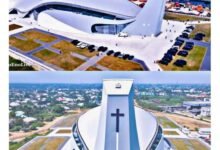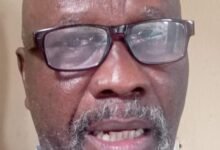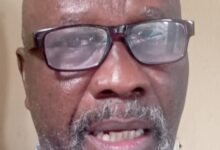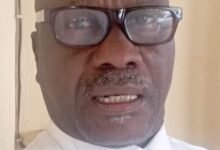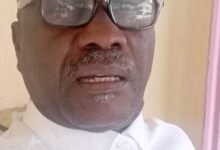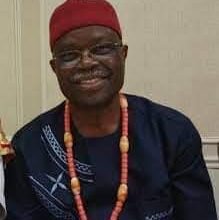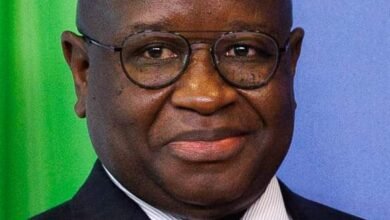
The Man Died
The Evangelist edition
October 3, 2022
By Soyombo Opeyemi
Language! The source of Wole Soyinka’s fame; the reason also for his alienation by the average reader! The Nobel Laureate is a man of complex locution. Besides his political forays, the density and immensity of his literature trademark him. The fact is, there can be no indolent or perfunctory reading of Wole Soyinka; his literary rampart is impregnable. You peruse him; then the fortress can give way.
However, the language employed by the playwright in his prison memoir is in a class of its own. Set in the Civil War Nigeria, The Man Died is a riveting account of the atrocities perpetrated by the military regime against the civil populace, in which the author was also a major victim – of solitary confinement without trial for fifteen gruelling months. The abuses fill you with horrors: the flogging syndrome, detention and imprisonment without trial, killing, torture as pastime; sadism and crushing of the civic will; the climate of appeasement against the rule of law, etc.
His critics believe that language and power cannot be placed on the same pedestal. The former must defer to the latter. Language, in all its ramifications, must kowtow to power, however malevolent is the latter. But the human rights activist disagrees, “When power is placed in the service of a vicious reaction, a language must be called into being which does its best to appropriate such obscenity of power and fling its excesses back in its face.”
The author argues that language is a part of resistance therapy. It must be employed to liberate enslaved public psyche. Those who raise eyebrows on the mode of The Man Died but are silent on the evils that provoked the choice of words do so probably for want of bravery or acquiescence in the unassailability of power, even at its most cynical and tyrannical. “Such criticism,” according to Soyinka, “must begin by assailing the seething compost of inhuman abuses from which such language took its being, then its conclusions would be worthy of notice. When it fails to do so, all we are left with is, yet again, the collaborative face of intellectualism with power – that is, the taking of power and its excesses as the natural condition, in relation to which even language must be accountable.”
The Man Died interrogates the silence of the intelligentsia in the face of horrendous human rights abuses, accusing it of criminal complicity through conduct and warning that “the boundaries of the geography of victims of (power) eventually extends (sic) to embrace even those who think they are protected by silence.” The man dies in all who keep silent in the face of tyranny. In any people that submit willingly to the ‘daily humiliation of fear’, the man dies.
While in Ikoyi Prisons, as a prisoner of conscience, the author saw and heard the accounts of the victims of the Gestapo. The Black Hole in Dodan Barracks; the torture and flogging syndrome by soldiers. The picture of sadists who dined and wined and lulled themselves to sleep with the sounds of the tortured was grim and stupefying. Here is a narration of the writer-activist about one of the casualties of the flogging syndrome.
“I went and looked at a back of purulent sores. There was no skin. None at all. It was a mass of sores which no longer had definition as each weal had merged into another… My mind returned to the back I had seen, the still suppurating furrows, dark raised permanent swellings, the potholes where the tip of the whip must have dug more than once. A few scabs that seemed an inch thick. And his neck, even to the base of the head, covered in weals.”
“They were flogged in the open, you said.”
The Evangelist Daily News, sign up for our daily news and special offers!
“And they screamed?… But Gowon lives in those barracks. He must have heard the screams.”
Agu said, “Frankly, I don’t think he knew. He lived far away from the guardroom.”
“Those screams must have penetrated concrete.”
Often, the offences ranged from being from a particular tribe, to a section of the country, to being in their company, a mild protest at injustice, to what was considered a slight. It was an era of lawlessness… Journalists are usually the first victims of any dictatorship – Segun Sowemimo eventually died as a result of having been “brutally beaten, he and other colleagues, by soldiers on the orders of a Military Governor.”
Soyinka himself was framed, said to have confessed to “an arrangement with Mr Ojukwu to assist in the purchase of jet aircraft to be used by the rebel Air Force”, and was later said to have admitted “he had since changed his mind.” He was also said to have agreed with Victor Banjo “to help in the overthrow of the Government of Western Nigeria. Soyinka further agreed to the consequent overthrow of the Federal Military Government.” But the radical was not put on trial. Although there did exist a Third Force, Soyinka had confessed nothing to anyone. “I was framed and nearly liquidated because of my activities inside prison.
From Kirikiri I wrote and smuggled out a letter setting out the latest proof of the genocidal policies of the government of Gowon. It was betrayed to the guilty men…” Soyinka believes that “a commitment to absolute ideals cannot plead the excuse of immobilization to turn his back on the fight for an equitable society.” One of the government goons among the academic staff in Ibadan got to know about the letter, “made a photostat, and dutifully passed it on to his military bosses.” That was the turning-point in the incarceration of the human rights campaigner and the horrendous sufferings that were to be his lot.
But The Man Lived despite the plot to annihilate him. The machination: “They argued that the public would believe their prepared story which was: while being flown to Jos, I pulled out a gun, tried to take over the plane and was shot in the attempt. A violent man meets a violent end; the dramatist over-dramatizes himself once too often.”
I agree the story would have been believed. Soyinka’s past in holding up the Western Nigeria Broadcasting Service at gun-point in 1965 would have stood against him in the court of public opinion. He was alerted, hence his attempt to stymie the scheme through an orchestrated riot at Ikoyi prison on the D-day. Smarting from the failed evil plot to eliminate the gadfly, he was transferred to the Maximum Security Prison and manacled twenty-four hours a day. Public humiliation was to follow. Another forgery announced that Soyinka had been caught ‘skulking along the wall’ in an attempt to escape from prison!
The revolutionary was to lament later that he should have indeed escaped! “I fault myself now…recognising that since I had settled within myself all doubts about the bankruptcy of Gowon’s moral order from that moment of his release of the two murderers, it was not enough to send word to a band of emasculated intellectuals. I should have done then what I now stand accused of doing – escaped.”
In spite of his embittered articles in the press condemning the carnage perpetrated or condoned by the Federal Military Government, Soyinka was never under any illusion about the futility of secession, in a context. The loss of his excitable friend, Christopher Okigbo, in defence of boundary was sobering enough. “It is better to believe in people than nations… And any exercise of self-decimation solely in defence of the inviolability of the temporal demarcations called nations is a mindless travesty of idealism. Peoples are not temporal because they can be defined by infinite ideas. Boundaries cannot.” Soyinka never saw hope in Enugu nor Lagos. So also were Alale and Banjo. It is better to defend humanity, ideals than boundaries. The trio were united on this score: Esta tierra/ Este aire/ Este cielo/ Son los nuestros/ Defenderemos – those lines by Castro – This earth is ours/ And the air/ And the sky/ We will defend them. “In defence of that earth, that air and sky which formed our vision beyond lines drawn by masters from a colonial past or redrawn by the instinctive rage of the violated we set out, each to a different destiny.” A melancholic peroration indeed by the poet: Banjo, Alale to the firing squad, Soyinka to prison…!
The book features also the exuberance and excesses of Gowon. On that former, I have always argued, could be located the immediate reason that led to the Civil War. I refer to the youthfulness of some of the gladiators. Gowon, 32; Ojukwu, 33; Danjuma, 28; Katsina, 33; etc. Where is age? Where is experience? Some of them were not even married as at the time they held the most important posts in the nation. The fratricidal war, I humbly submit, is, also, a price the nation paid for youthful exuberance.
The encounters of WS with Col. Fajuyi, his philosophy, the complicity of the judiciary in the crisis of the West, especially their last tete-a-tete three days before he met his untimely death… are all absorbing.
To suggest that Soyinka suffered in prison is to detract from what he went through in solitary confinement. No word can describe the tedium of solitary confinement, especially as a prisoner of conscience. He tried to make the most of it within the limits of human endurance. Even death would have been a triumph at a point, as he became a living skeleton. His will was stretched but not broken. It is to his eternal credit that he never accepted a life under an insupportable system as a substitute for his freedom.
The book also leads us to the belief-world of the poet. Apart from his position as relates to God, which is widely known, it is plausible to say that the burden of loneliness led to some other discoveries. “Creation,” he says, “is admission of great loneliness. The mind is time – and on that flash he rested now the problem of Infinity at last. The mind is sole coefficient of time and space.”
An academic of distinction, Soyinka’s description of the lives of insects and animals, in their ecological splendour, within the prison wall in Kaduna, is superb. One must praise him for having the vocabulary to do all that – a register of some sort for school children.
In summary, the book reveals the tribulations that are sometimes the lot of those ‘who are allied and committed to the unfettered principle of life’, for which Soyinka is a living example. His public spiritedness is exceptional.
The Man Died in the contemporary Nigeria, what lessons? First, we say ‘never again’ to military rule. It is a curse for any people created by the Almighty to be ruled by guns. In the contemporary world, military rule is tantamount to terrorism because what it seeks to do is to drive fear into the populace as a prelude to domination. The military, as it is the practice in developed climes, must subordinate itself to all civil authorities. The army must never be used for political ends by the President.
The misuse of the police and armed forces in 1964/65 elections by the powers-that-be played a major role in the incursion of the military into governance and the attendant wanton depradations. The rule of law must become an article of faith, any infraction attracting condign sanctions from a truly independent and apolitical judiciary. No one should ever keep quiet in the face of injustice or tyranny.
The police and military must obey only orders that are legal and constitutional. Neither race, tribe, colour nor religion should henceforth define our lives but the content of our character. Those in power must be committed to the welfare of the citizens.

